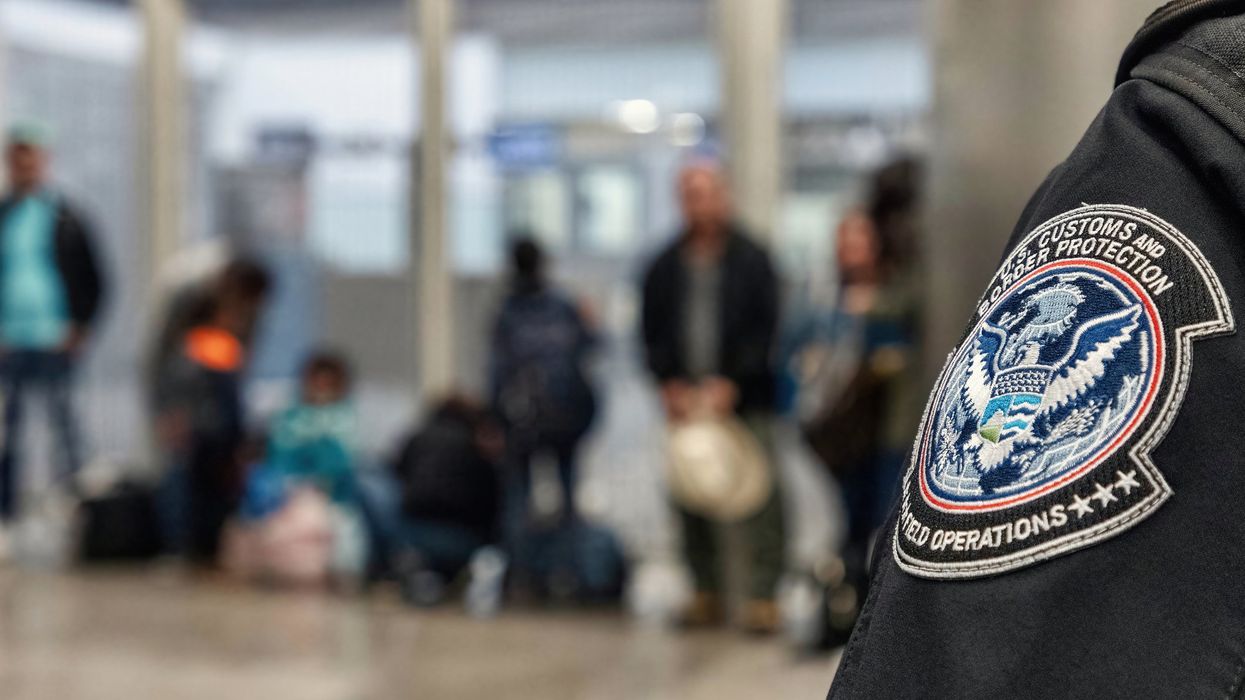As part of the Trump Administration's many moves toward tackling the United States’ ‘immigrant crisis,’ the DOJ recently announced a prioritization of denaturalization procedures, a move that some migrant support organizations recognize as setting a dangerous precedent. But that’s not all, the Trump administration has also requested over $175 billion, which will be divided between Immigration and Customs Enforcement (ICE), Customs and Border Protection (CBP), detention centers, courts, among other things.
It seems that even those of us who have gone through the naturalization process are at risk. No one is truly safe. It doesn’t matter if you are doing things “the right way.” They don’t want us here. It was never about legality.
Government agencies are tackling the immigrant issue with an iron fist, though the legality of their methods is questionable, as it’s been reported multiple times that tourists, legal residents, and even citizens have fallen victim to ICE’s warrantless antics. Even just this week, Washington D.C.'s chief of police released an executive order that allows law enforcement officers to report on the immigration status of the people they pull over during traffic stops and even transfer these individuals to ICE custody, encouraging Metro PD officers to act against policies directly stated in the city’s Council Code.
When I moved to the U.S. from Colombia in 2018, I was one of the lucky ones, coming in with a green card from the jump, as my dad had family here and managed to gather up the $10,000 per person it cost to file the paperwork. I figured, having a green card, I wouldn’t really need to stress much; my stuff was in order, a luxury not all immigrants can afford or even have access to.
Then, in 2023, when I met the five-year requirement to submit my citizenship application, I was so excited. I was doing things “the right way,” paying all the fees, taking all the steps. I received that naturalization certificate, and a weight was lifted off my shoulders.
But now, with everything going on, I have to carry a notarized copy of my U.S. passport, just in case an ICE agent sees my brown skin or hears me speaking Spanish and assumes I don’t belong here or decides that I’m a threat to national security.
Right-wing ‘activist’ Laura Loomer recently tweeted, celebrating the opening of the so-called ‘Alligator Alcatraz,’ that there are 65 million alligator meals waiting to be caught. This is odd because there are only 11 million undocumented migrants in the U.S. There are, however, over 65 million Hispanic people in the U.S. She claims that's not what she meant, but you do the math. Watching us all be described as “bad guys” is pretty disheartening, wrangling us up like cattle to the slaughterhouse. And maybe some readers will think I’m exaggerating, but that’s what it feels like.
I was once told by an ex, “If you hate it so much, why don’t you just go back to your country?” Back then, I thought the idea that you can’t want better for where you live just because you weren’t born there was hilarious. I figured that once I received my blue passport, people would stop questioning the validity of my opinions, as I’d be able to vote and all. Now, I’m just scared and heartbroken because having an opinion feels like putting a target on your back.
To be fair, I don’t know what to tell you to do. We’ve protested, we’ve voted, we’ve called our representatives. Any stronger response can land you on a terrorist watchlist. I understand appealing to empathy is pointless. Those who have it are worried, and those who don’t simply don’t care.
But immigrants, whether documented or not, are people. My whole life is here. My people, my job, my plans for the future, all here. All in a country that treats me and those like me like a pest. It hurts.
I did everything “the right way,” and I refuse to let myself be caged, so I might have to go before they catch me. How disheartening it is to have to think that way. I love my friends, I love my home. I don’t want to have to start over somewhere else. But I guess that’s where we are at. I grew up idealizing life in the U.S., dreaming about moving here and making a life, a dream I’m lucky enough to have fulfilled, and which feels like it is getting ripped out of my hands by force. So yes, maybe I will go back to where I came from.
Natalia Arcos Cano is an educator and Public Voices fellow of The OpEd Project with the National Latina Institute for Reproductive Justice and the Every Page Foundation.



















Trump & Hegseth gave Mark Kelly a huge 2028 gift